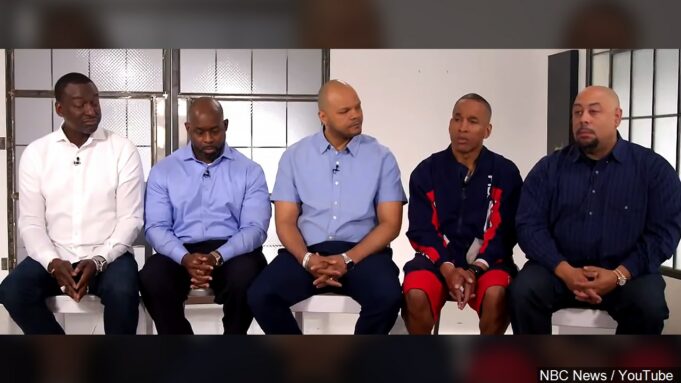by Naba’a Muhammad and Michael Z. Muhammad
The Final Call @TheFinalCall
Children are being tricked by police into making confessions. And it’s legal.
The state of Illinois is moving to outlaw the common and lawful tactic of lying to young people to get confessions that lead to court convictions. Illinois approved a bill prohibiting law enforcement officers from using deception tactics while interrogating minors.
Advocates have long argued Black youth are especially vulnerable to making false confessions. The legislation passed the General Assembly with almost unanimous support from both Democrats and Republicans.
Senate Bill 2122 provides that if during an interrogation a law enforcement officer intentionally engages in the deception of a minor under the age of 18 any statements provided by the minor would be inadmissible as evidence in court. Under the legislation, deception is defined as “knowingly providing false information about evidence or leniency.” Illinois is the first state in the nation to pass such legislation. The bill was passed on May 30 and Gov. J.B. Pritzker is expected to sign the bill into law in coming weeks.

“When a kid is in a stuffy interrogation room being grilled by adults, they’re scared and are more likely to say whatever it is they think the officer wants to hear to get themselves out of that situation, regardless of the truth,” the bill’s sponsor State Senator Robert Peters (D-Chicago) said in a statement.
“Police officers too often exploit this situation in an effort to elicit false information and statements from minors to help them with a case. Real safety and justice can never be realized if we allow this practice to continue.”
“Racially disparate treatment has permeated the United States criminal justice system throughout history. During the Jim Crow era, Blacks were legally barred from voter rolls in several southern states and were barred from serving on juries. In this era of racial strife, the police, prosecution, defense attorneys, judges, and jurors were almost always White.
Cross-racial misidentifications, forced confessions, all-White juries, and blatant racism led to the wrongful convictions of countless innocent Black people,” observed the Innocence Project, which works to free those often wrongly imprisoned for years through a combination of research and advocacy, including testing of DNA evidence that was not done or improperly done.
The jailing and even execution, lawful and unlawful, of Black youth have a long and dastardly history in America. In 1906, the lynching of a young Black man named Ed Johnson was a public spectacle in the heart of the Smoky Mountain city of Chattanooga, Tennessee. Before he was hanged, he said to the crowd of White men, women, and children who were watching: “God bless you all. I am innocent.”
In 1931, a fight occurred between Black and White boys on a freight train traveling through Scottsboro, Alabama. The police rounded up all Black boys riding on the train and ultimately arrested nine ranging in ages from 12 to 19. Two White girls then came forward alleging that they were gangraped on the train. All nine defendants claimed innocence. After four separate one-day trials with all-White juries, eight of the nine were convicted and sentenced to death. They became known as the Scottsboro Boys.
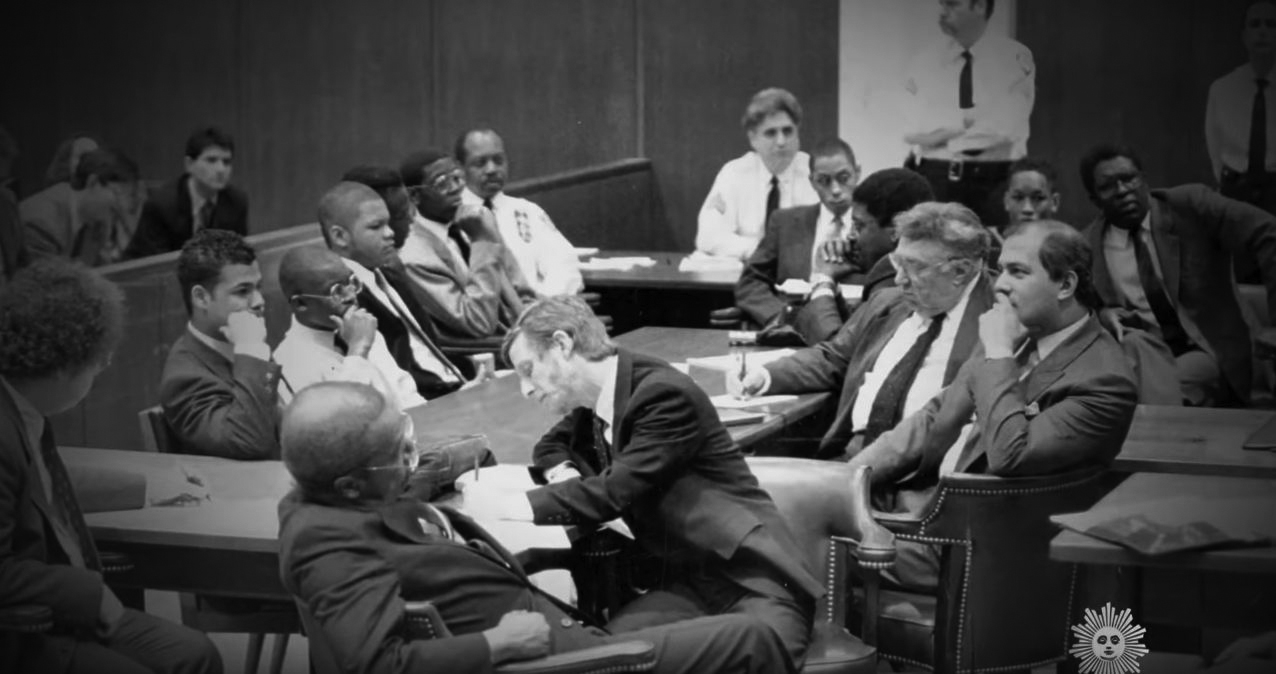
The Trenton Six were arrested in 1948 for the killing of a White furniture store owner in Trenton, N.J. Witness descriptions of the assailants ranged from “two to three Black men” to “two to four light-skinned teenagers.” The six young Black men who were arrested did not match the descriptions. Five of the Trenton Six signed inconsistent confessions, which they maintained at trial were coerced. All provided rock-solid alibis. Nonetheless, an all-White jury convicted the Trenton Six and sentenced them to death.
Probably the most infamous case happened in 1989 with the arrest and conviction of the Central Park Five, now known as the Exonerated Five, Antron McCray, 15, Kevin Richardson, 15, Yusef Salaam, 15, Raymond Santana, 14, and Korey Wise, 16. Four of the five teens, all from Harlem, confessed on videotape to a rape following hours of interrogation.
The boys later recanted and pleaded not guilty, saying their confessions had been forced.
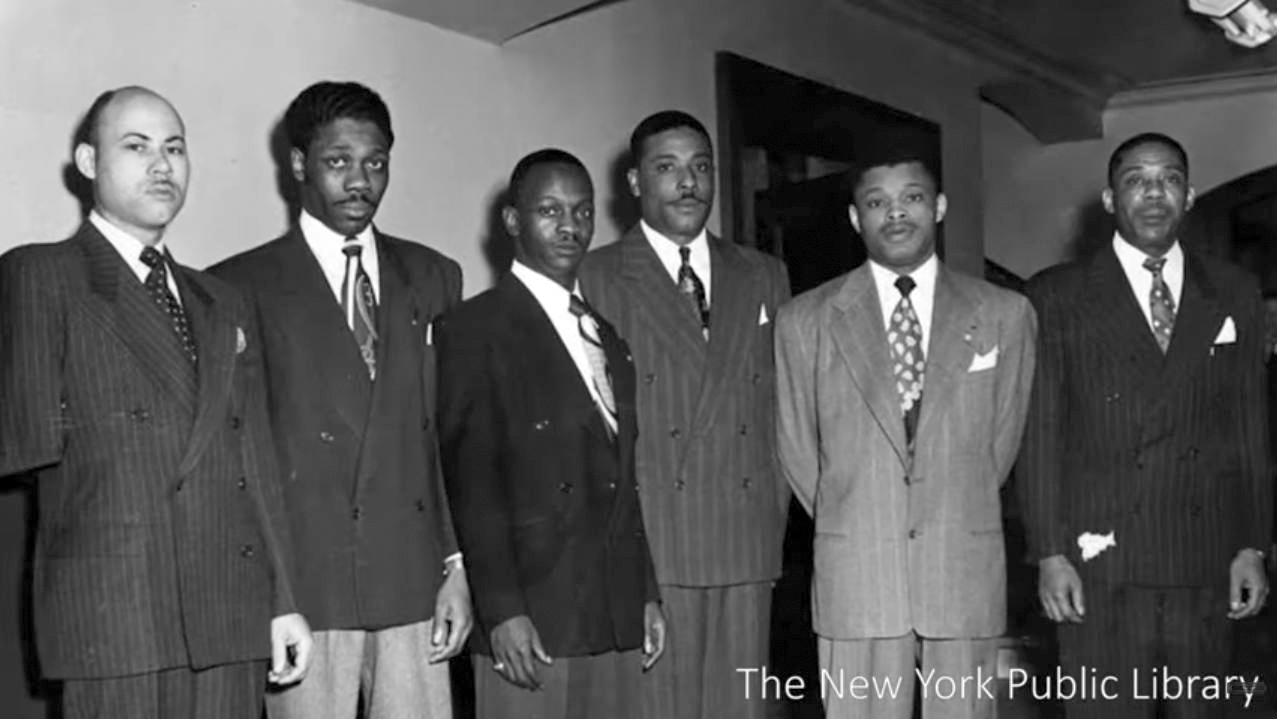
“When we were arrested, the police deprived us of food, drink, or sleep for more than 24 hours,” Mr. Salaam wrote in the Washington Post years later in 2016. “Under duress, we falsely confessed. Though we were innocent, we spent our formative years in prison, branded as rapists.” A confession from a convicted murderer and rapist and DNA evidence eventually led to freedom for the five young men.
Fast forward to the 1990s in Chicago, and the Englewood Four, Michael Saunders, Vincent Thames, and Harold Richardson were convicted along with Terrill Swift for the rape and murder of Nina Glover. This slaying happened when they were teenagers. They were convicted mainly on their confessions that were later found to be coerced by the police.
Houston, Texas child welfare attorney Pamela Muhammad told The Final Call the Illinois legislation interested her greatly. “Defending disadvantaged youth has been one of the factors that I’ve seen most in my practice. The targeting of our youth really is seen repeatedly in poor communities,” she said.
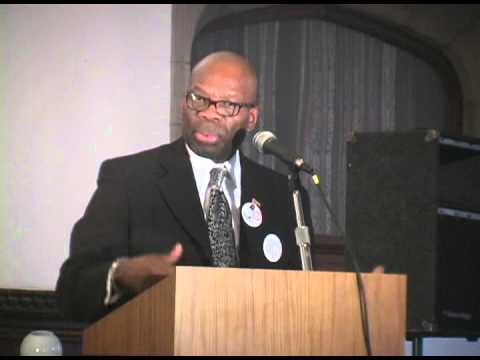
“The police practice of lies is a violation of constitutional rights when it comes to youth and custodial interrogation and the rights against self-incrimination that are implicated here. You got the fourth amendment as they are snatching up children without probable cause; they’re just detaining them.”
Attorney Muhammad noted that with adolescents and issues like brain development and intellectual development, it’s very coercive for children to be in police custody in the first place.
“Any time they’re in a custodial interrogation with police or any custodial situation, the child feels a more likely need to comply with authority. They’re less responsible. They lack experience, their perspective and judgment are already off. And so they are vulnerable under police pressure and incline to believe if I say what the police want to hear, they can go home,” she explained.
“They are likely to go off course and either confess to something that they didn’t do or give some information just so you can go home. And the impulsivity of youth makes them very vulnerable. The police know they’re very naive. So this behavior is a violation that has gone on way too long. The law is way overdue.”
‘The False Conviction Capital of the U.S.’
What is not well known is that the police have the right to lie under the protection of the United States Constitution. Illinois has seen a series of group exonerations of young people, including the Englewood Four, the Marquette Park Four, the Dixmoor Five, and the Uptown Seven, all predicated on false confessions. The state has long been known as the “False Confession Capital of the United States.”
“The history of false confessions in Illinois can never be erased, but this legislation is a critical step to ensuring that history is never repeated,” said Kimberly M. Foxx, the state’s attorney for Cook County, Ill., which includes Chicago, said in a statement. “I hope this is a start to rebuilding confidence and trust in a system that has done harm to so many people for far too long.”

“It is time for us as a people to realize that a lot of solutions to our problems is really in our hands,” said activist Wallace “Gator” Bradley of Chicago-based United In Peace Inc.
“If we just work together through listening to the people within the community, their concerns and make it a good policy. The legislation is way overdue, but it’s right on time. I credit the progressive caucus, especially the Black caucus within the state legislative body, all state representatives and the state senators, and especially the new speaker of the house, the first African-American in that position, for its passage.”
In terms of national implications, Mr. Bradley stated, “As this legislation starts within the Midwest, it will sprout just like a mustard seed. Now is the time that everything is moving right. Now everyone understands the evilness of systemic racism. Now everybody understands the importance of reform, not refinement, but reform.”
The Chicago police department, in particular, has a long history of torturing and framing those accused of crimes. The city has paid millions in lawsuits once these legal atrocities finally come to light. But few officers ever pay the price for their wrongdoing and destruction of lives.
“To date, there is little research on the role of race in police interviews and interrogations,” observed Sara C. Appleby, in a 2015 study “Guilty Stereotypes: The Social Psychology of Race and Suspicion in Police Interviews and Interrogations.” But her research examined Black and White participants’ experiences during a mock crime interview and using those interviews the role a suspect’s race plays in police officers’ “veracity judgments” was evaluated.
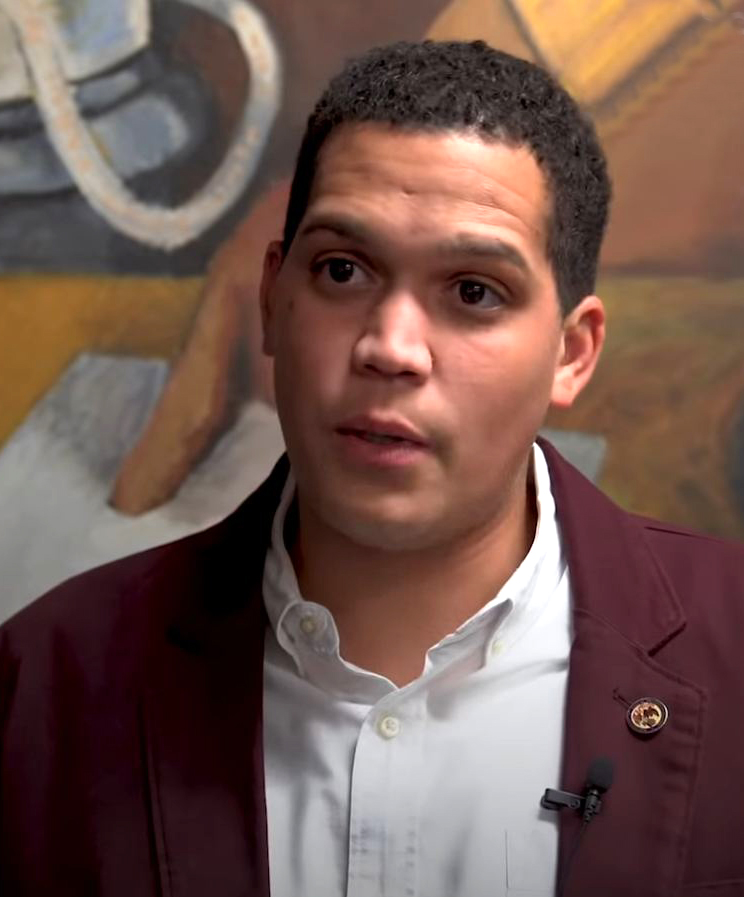
“Black and White suspects in Study 1 reported similar levels of anxiety and exhibited similar rates of nonverbal behaviors commonly believed to be cues to deception. Similarly, Black and White suspects cooperated with the investigation at similar rates,” she found.
“Police officers in Study 2 exhibited chance levels of accuracy in their culpability decisions. However, police officers were significantly more likely to misjudge innocent Black suspects as guilty than innocent White suspects, while showing no difference in their accuracy rates for guilty suspects.
Additionally, police officers judged Black suspects to be less cooperative and less forthcoming than White suspects. These results suggest that being questioned about a crime is stressful regardless of a suspect’s race or ethnicity. They also suggest that innocent Black suspects are at a greater risk of being erroneously judged as guilty during police interviews and interrogations.”
Black children are also more likely to be arrested, charged, convicted and jailed for crimes and instances abound in which Black youngsters, denied their rights, were pressured into lying about their guilt when they were actually innocent. Not to mention the intentional targeting of Black youth and police officers lying and setting up Black young people.
“The police can use a variety of powerful psychological ploys to extract confessions from criminal suspects, including the use of deception during interrogation. For example, the U.S. Supreme Court had allowed police to falsely claim that a suspect’s confederate confessed when in fact he had not (Frazier v. Cupp, 1969) and to have found a suspect’s fingerprints at a crime scene when there were none,” according to the American Psychological Association. “Police can claim to have evidence that does not exist. During interrogation, police can lie and make false claims. They can create fake proof as well.”
“In the interrogation room, police officers have a superior bargaining position because they control the environment and place the suspect in a heightened state of vulnerability. In addition, police have a powerful tool of persuasion: they can threaten the suspect with punishment. Through lies, police can manipulate suspects by altering their perception of their options. This manipulation shows disrespect for the suspect’s individuality, undermines the trust in police, and violates the presumption of innocence,” added the Cornell Law Review.
The Innocence Project noted, “Young people are especially vulnerable to falsely confessing under the pressure of deception because the parts of the brain that are responsible for future planning, judgment, and decision-making are not fully developed until a person reaches their mid-twenties. Of the 211 exonerees who were wrongly convicted as children, 36 percent falsely confessed, whereas 10 percent of exonerees who were wrongly convicted above the age of 18 falsely confessed, according to data from the National Registry of Exonerations.”

Such behavior under pressure, deprivation and threats becomes even more pronounced when employed against children by cops who have nothing to lose.
And, as USA Today noted, the Illinois bill “does not, however, include punishments for officers who lie during interrogations or address officers who use deceptive tactics outside interrogation rooms. That could incentivize officers to question minors in other settings,” said Stephanie Kollmann, policy director of the Children and Family Justice Center at the Northwestern University Pritzker School of Law, in The New York Times.
Judges need to follow new law when enacted
A court ruling that allows the police to lie is very demonic, Attorney Muhammad argued. “When you’re lying to people, then you’re coercing them. And again, the immaturity of youth in the developmental stages with this type of deception and coercion and fake confessions, false evidence has the effect of really helping them to become victims. It turns young people’s lives into nightmares.”
“I actually think these are constitutional level violations of due process. This type of conduct feeds the system. It is actually the continuation of chattel slavery and, you know, the 13th amendment, because actually everybody is entitled to due process of law. So this type of trickery is like Black codes. You’re just tricking people. And this is why the system must be dismantled,” she continued.
“The trickery and the deception that has been revealed on this level, lying to people is almost criminal that police under the color of law be allowed to lie to defendants or suspects or just people in general to coerce them.”

Mark Clements, himself a police torture victim as an adolescent, is with the Chicago Torture Justice Center. He told The Final Call he thought the Illinois bill was a great piece of legislation with a caveat.
“If you look at the history, our courts have not followed previous legislation about juveniles. For example, it was illegal to take a juvenile to the police station and to question them absent their parents and not provide them with access to a telephone,” he said. “And our courts have not looked at that issue as a way to dismiss cases, to hold police officers accountable for their misconduct.
“This is an excellent piece of legislation. If the judges follow it,” he stressed.
Mr. Clements went on to say he was not aware of any grassroots organizations that were involved in the legislation. “I actually found out about this piece of legislation from State Representative Ken Buckner, who brought it to my attention,” he said. “What concerns me is the large settlements that the city is being forced to pay out due to police misconduct.
“They have taken taxpayer dollars to be their personal pocketbooks. They have not stopped mistreating suspects inside police stations or out on the streets. In some instances, it’s causing some of these cops to be promoted rather than demoted, and it’s business as usual. It’s taxpayers’ money that is paying out these big settlements,” Mr. Clements said.
“We paid out some huge settlements. In the Nate Deal’s case the city paid out over $25 million. In the case of Juan Riveria, they paid out $22 million, in the case of Eric Kane $10 million. So notice, so long as the taxpayers can be the pocketbooks of guilty, corrupt cops they are going to remain to do what they are doing,” he concluded.












